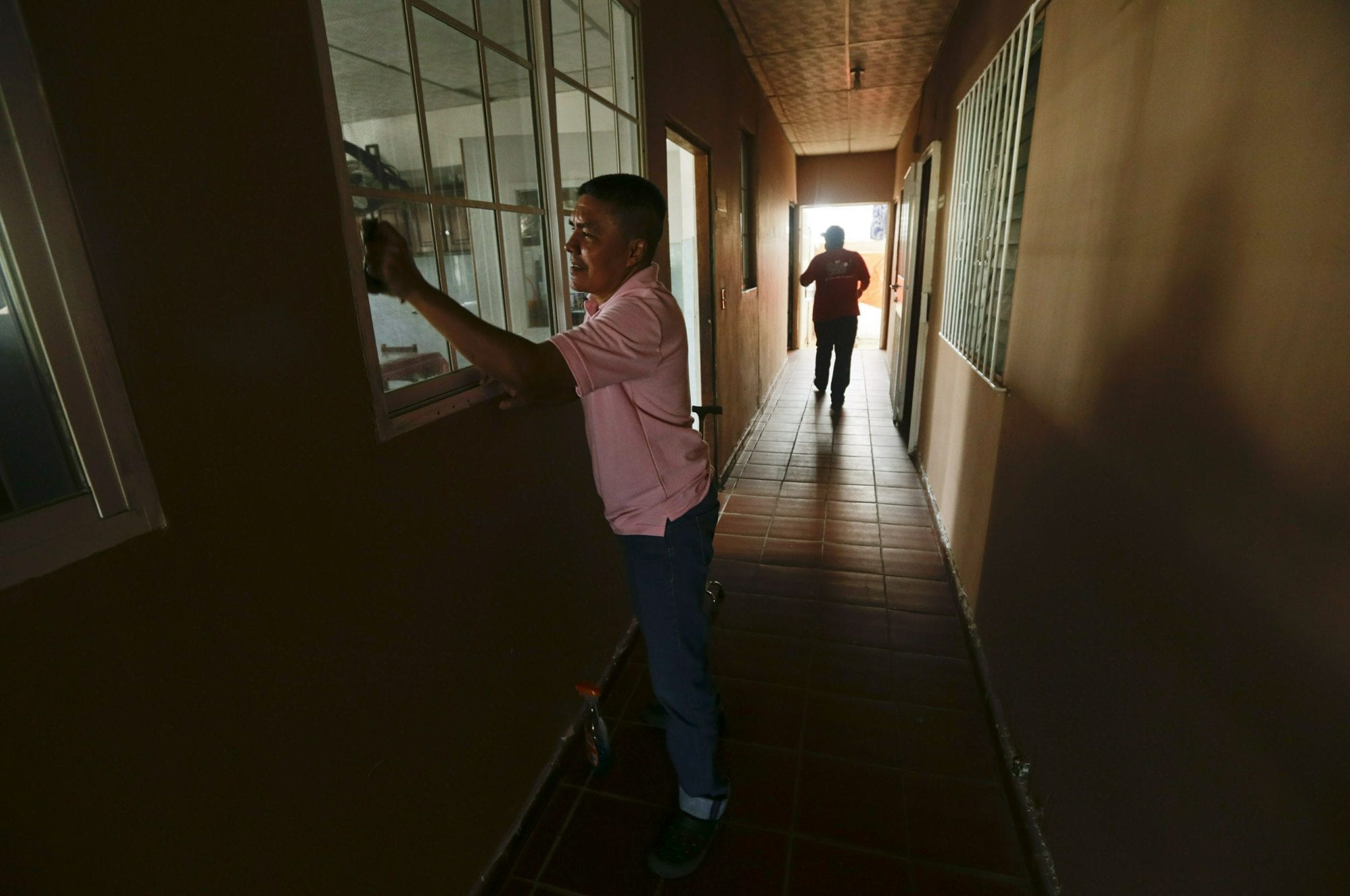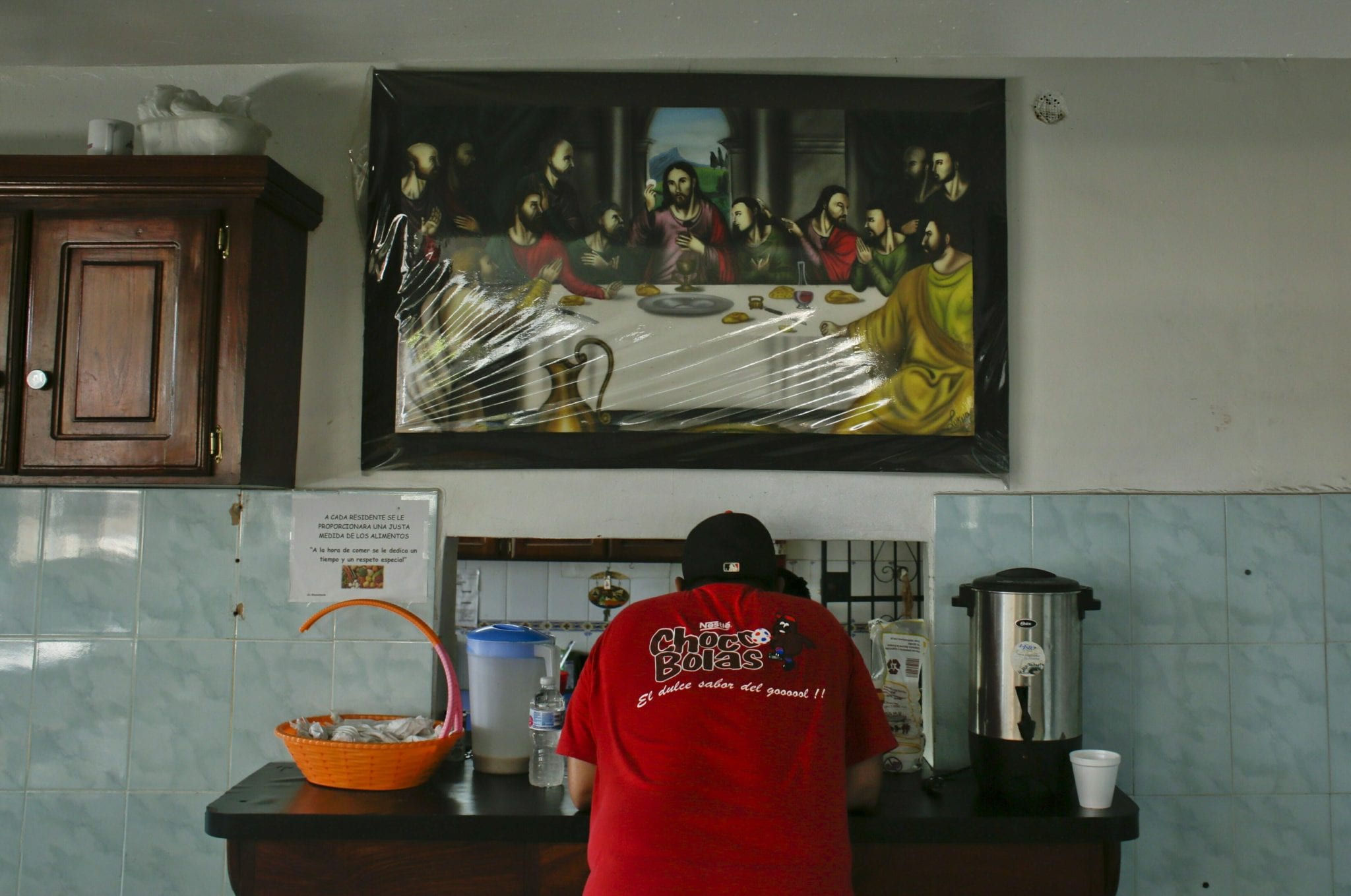PANAMA CITY — Like many others from his poor, indigenous region of Panama, Raul Tugri left for the capital years ago in search of opportunities. He found work at a supermarket, but alcohol abuse sent his life into a tailspin and four years ago he was diagnosed with HIV.
“My world came crashing down,” Tugri said on a recent morning at the Good Samaritan home, a Roman Catholic-run shelter that has housed dozens of HIV and AIDS patients since it opened its doors outside Panama City in 2005. “It destroys your dreams. You only think of death.”
The shelter is readying for a high-profile visit Sunday by Pope Francis, who is coming to offer spiritual succor to the 10 men and five women currently in its care.
The first Latin American-born pontiff, who has made defending those on the margins of society a hallmark of his papacy, has called for people to be responsible to avoid the spread of HIV and lamented that many of the millions who live with the virus have no access to treatment.

He has also sought to break the stigma that haunts HIV sufferers in many parts of the world — Panama included. Francis’ visit to the Good Samaritan home is likely to do just that, just as it did when he washed the feet of HIV patients during a Holy Thursday ceremony nearly 20 years ago in his native Buenos Aires.
Tugri is among those preparing to tell the pope his story and has been busy weaving bags with indigenous patterns for Francis, one in the colors of the Panamanian flag and another with those of Francis’ favored soccer club, Argentina’s San Lorenzo de Almagro.
“I’m going to ask for his blessing,” Tugri said.
Panamanian health officials say that since the first case of AIDS was identified in 1984, there have been nearly 16,000 cases and 11,336 deaths in the country. Most of the cases registered each year affect people between the ages of 15 and 24 and are especially prevalent in indigenous communities. The western Ngabe-Bugle region, where Tugri was born, is among the hardest hit.
Good Samaritan, which is run by Panamanian Father Domingo Escobar, took Tugri in two years ago when he was thin and weak. The shelter had started helping those who slept in a neighboring park after being abandoned by their families.
Set to launch an expansion, the facility is helped by an infectious disease specialist from a public hospital, the Catholic Church and private benefactors.
“This is physically a house and a home because it is like a family,” Escobar said. “Here we give them their medicine, feed them and provide encouragement.”

Many patients stay at Good Samaritan for months, leaving only when they have recovered a bit, found a place to live and are familiar with their medicine regimes. Some have also died there and received a Christian burial, according to Escobar.
Tugri, who has been in a wheelchair since suffering a cerebral bacteria infection, said that he can now move his legs a little better. He wears his hair short and sports shiny metal necklaces.
He doesn’t want to talk about the past. His goal is to get well enough to return to his hometown to raise young people’s awareness about HIV.
“Because of culture or ignorance, they’re not careful having sex,” said Tugri, who was abandoned by his mother as a child. “I think you have to leave behind your fear and shame to talk about this.”













